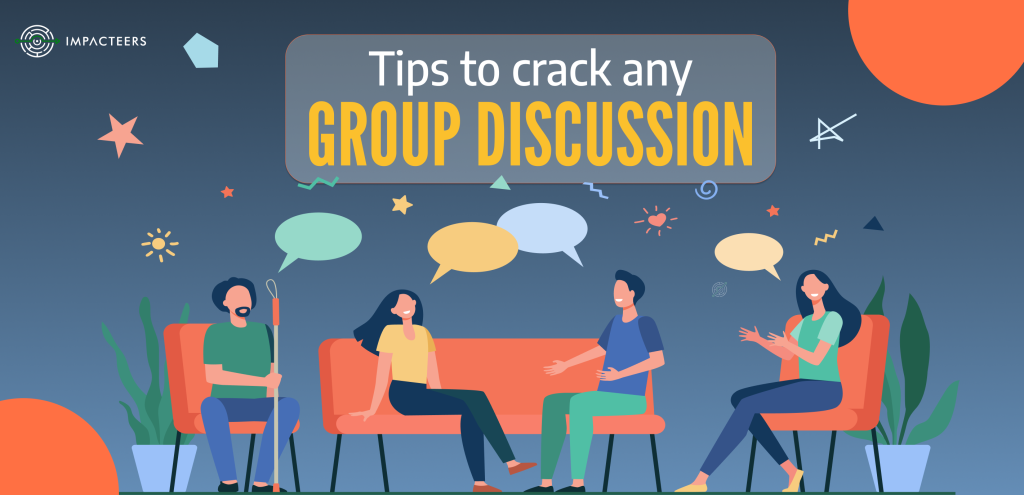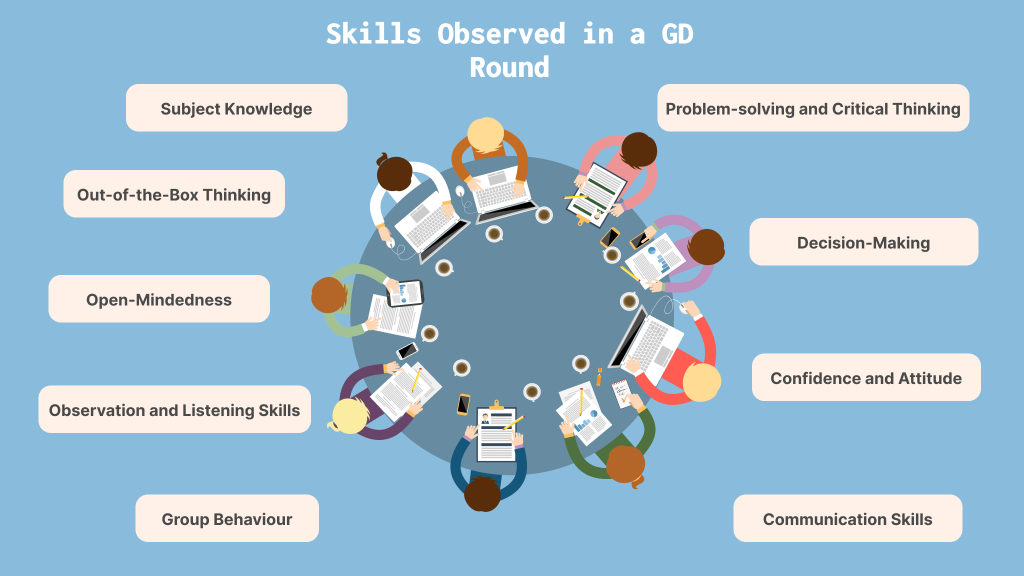Group discussions are an essential part of job interviews and college placements. They test not only your knowledge but also your ability to communicate, think critically, and work in a team. Cracking a group discussion round can feel challenging, but with the right approach, you can easily excel. Here’s how you can prepare and perform like a pro.

Explore more on Impacteers to get a detailed guide on learning, Upskilling, Find Jobs and internships, Choose your Mentor, Building your Resume and Cover letter (ATS Free)
Build your Free Resume>>> https://www.impacteers.com/resume
Visit Now>>> https://www.impacteers.com/
Register Here>>> https://www.impacteers.com/dashboard
Process of Group Discussion
In a Group Discussion (GD) round, candidates are provided with a specific topic to discuss within a set time frame, usually 20-30 minutes.
Before the discussion starts, candidates are given a preparation period of around 5 minutes to collect and organize their thoughts. Here’s a step-by-step breakdown of the process:
- Introduction to the Topic: The facilitator announces the topic for discussion, which can vary from current events to abstract concepts. Candidates are informed about the theme they will discuss.
- Preparation Time: Participants are given a short preparation period (typically 3-5 minutes) to gather their thoughts, brainstorm ideas, and outline their points related to the topic.
- Discussion Begins: Once the preparation time is over, candidates start the discussion. They share their viewpoints, engage in debates, and respond to each other’s arguments.
- Discussion Among Participants: The discussion continues with active participation from all members. Candidates build on each other’s ideas, counter arguments, and provide supporting evidence to strengthen their points.
- Results: After the discussion time elapses, the facilitator may summarize the key points raised. This phase might also include feedback from the evaluators regarding the overall performance of the candidates.

Skills Observed in a GD Round
During the GD round, interviewers and moderators are looking for specific skills that demonstrate a candidate’s potential in a workplace setting. These include:
- Communication Skills: Your clarity, articulation, and ability to convey thoughts effectively.
- Confidence and Attitude: How confident and composed you appear while sharing your opinions.
- Decision-Making Ability: How well you can make logical decisions during the discussion.
- Problem-Solving and Critical Thinking: Your ability to approach the topic with an analytical and creative mindset.
- Subject Knowledge: How well you understand the topic and relate it to general knowledge.
- Out-of-the-Box Thinking: Can you bring unique perspectives to the discussion?
- Presentation of Ideas: How you structure and present your views to others.
- Open-Mindedness: Your ability to listen to others, accept different viewpoints, and build upon them.
- Observation and Listening Skills: How well you absorb information from other participants.
- Group Behavior: How you interact with others in the group and contribute to teamwork.
Types of Group Discussion Topics
Group discussion topics can generally be classified into three categories:
- Factual Topics: These topics are based on current events or facts, such as “The Impact of Social Media on Society.”
- Abstract Topics: These require creative thinking and could include phrases like “Success is a Journey, Not a Destination.”
- Case Studies: Real-life scenarios that require problem-solving skills, such as “How Would You Improve a Failing Business?”
Tips for Cracking the Group Discussion Round
Here are some effective strategies to excel in group discussions:
- Stay Updated: Keep abreast of current affairs and trending topics. This knowledge can significantly enhance your contributions.
- Practice Regularly: Join GD groups or participate in mock discussions to build your confidence and speaking skills.
- Be Structured: When presenting your views, be concise and organized. Start with a clear point, provide supporting arguments, and conclude effectively.
- Give time for other candidates: Acknowledge the contributions of fellow candidates. This not only showcases your teamwork but also helps foster a positive discussion environment.
- Handle Disagreements Gracefully: It’s okay to disagree, but always maintain a respectful tone. Focus on the issue, not the person.
- Maintain Good Body Language: Use positive body language to convey confidence. Make eye contact, sit up straight, and use hand gestures appropriately.
After clearing GD round, you may head to next rounds of interview. However, there are more prominent types of interview recruiters conducts following the market trend including a round of personal interview. Download IMPACTEERS app to get latest job updates and upskill yourself!!



Post Comment